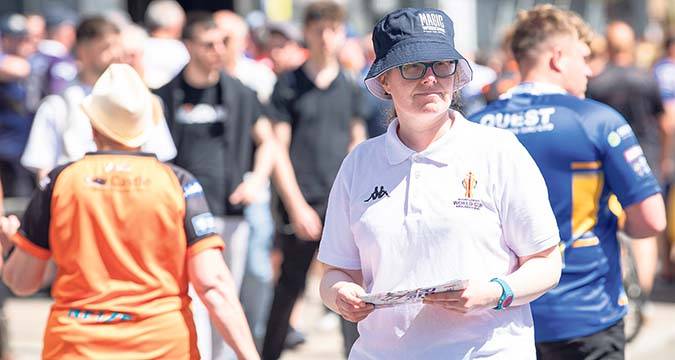 What is a realistic target for World Cup ticket sales?
The World Cup organisers, led by their chief executive Jon Dutton, have always said that the target is 750,000 ticket sales or more.
So how far are they from reaching that target?
The World Cup team doesn’t reveal precise details of how many tickets have been sold, but the most recen
What is a realistic target for World Cup ticket sales?
The World Cup organisers, led by their chief executive Jon Dutton, have always said that the target is 750,000 ticket sales or more.
So how far are they from reaching that target?
The World Cup team doesn’t reveal precise details of how many tickets have been sold, but the most recen Talking Rugby League: World Cup publicity must be ramped up as ticket sales stall
 What is a realistic target for World Cup ticket sales?
The World Cup organisers, led by their chief executive Jon Dutton, have always said that the target is 750,000 ticket sales or more.
So how far are they from reaching that target?
The World Cup team doesn’t reveal precise details of how many tickets have been sold, but the most recen
What is a realistic target for World Cup ticket sales?
The World Cup organisers, led by their chief executive Jon Dutton, have always said that the target is 750,000 ticket sales or more.
So how far are they from reaching that target?
The World Cup team doesn’t reveal precise details of how many tickets have been sold, but the most recen 